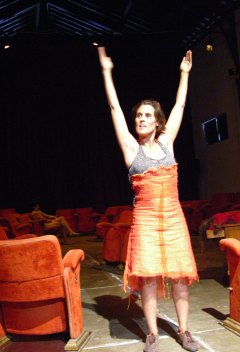|
Filipa Francisco and Idoia Zabaleta: Lisbon, June 2006 Filipa Francisco (Portugal) and Idoia Zabaleta (Spain) spent a year on this project, most of the time interacting over a distance. They wrote about the piece: "It is a reflection on the possibility to affect not only the other person's imaginary, but also her physicality." The performance takes place in a barn in the grounds of the Hospital Miguel Bombarda in Lisbon. The doorway is blocked with white paper, we are waiting outside. Someone from inside the barn starts drawing a silhouette of a human body on the paper. 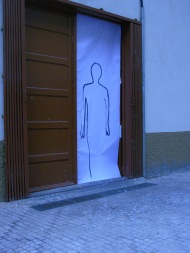
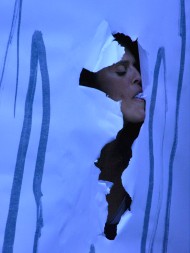
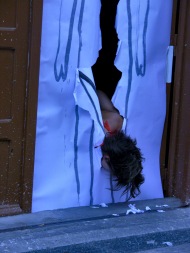
After the drawing is finished, a mouth chewing the paper away creates an opening, through which we enter the dark room. Idoia Zabaleta is waiting there and bids us welcome. We surround her in the entrance area of the barn and watch her solo. As our eyes get used to the darkness, we recognize that a second, apparently naked person is sitting at the back of the room on a red sofa. Idoia's solo contains a lot of spoken text, which I unfortunately do not understand. After she finishes, the light in the whole room goes on and we move forwards to take seats. 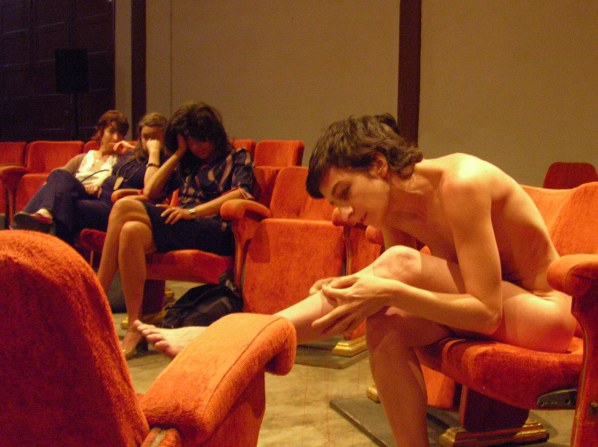
The naked person now sitting in the middle of us is Filipa Francisco. She starts her solo by attaching a red string to her leg, then gets up from the sofa and begins dancing among the armchairs, pulling and winding the string around her body. For a while unnoticed, Idoia Zabaleta is moving along the walls, unfolding another red string and stretching it across the room. Filipa Francisco gets dressed and joins her for this "duo", which makes up the major part of the performance. They weave a red web low above our heads, skillfully navigating though without destroying it. As the web gets denser, this gets difficult; the trick is to lift bunches of strings while passing underneath. Some strings are stretched so low that they graze our heads. We touch them and feel vibrations as the web resonates from the knitting and pulling by Filipa and Idoia. 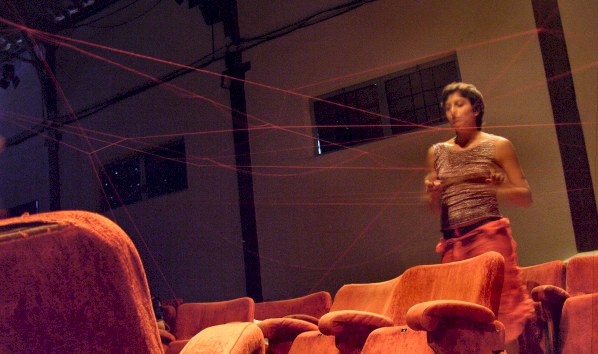
While they weave the web, the performers recite the letters which they exchanged before (English translations provided). They are about memories of childhood, dreams and fantasies and give clues concerning the actions taken by the performers. For example, Filipa dreams about a woman wrapping her body in a red thread until it becomes a big red blot. When Zabaleta talks about Communion, it dawns on us that the body drawn in the doorway at the beginning belonged to Jesus Christ, and the odd way of opening the entrance by chewing the paper away symbolized the ritual of eating Christ's body. Listening to the letters is important, because it connects seemingly unrelated parts and makes a rounded piece out of what otherwise would feel arbitrary. From the dramaturgical point of view, I only missed a punctuation mark at the end. Reading letters while weaving the web was the longest part of the performance and it needed a distinctly different kind of action at the end, marking the finale before the artists removed themselves from the stage. This minor critique should by no means downgrade this truly modern and enjoyable performance with a great deal of personal commitment by both performers.
|
